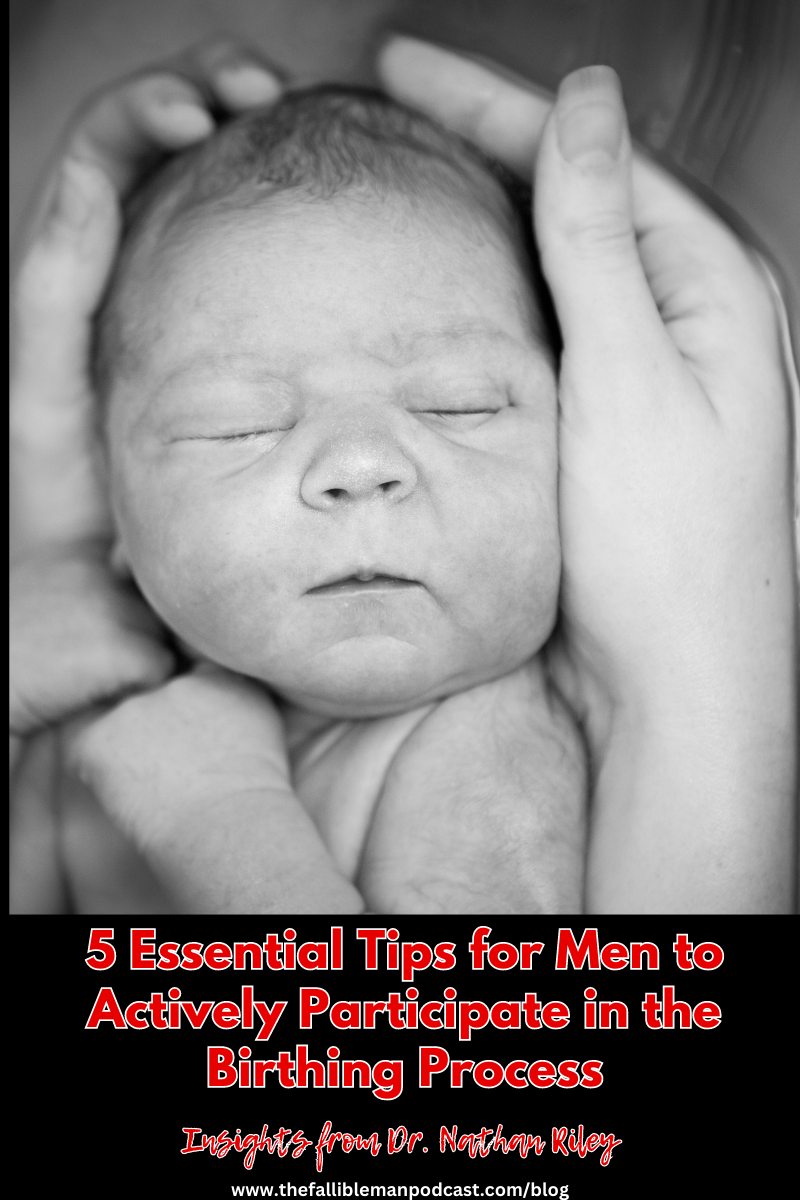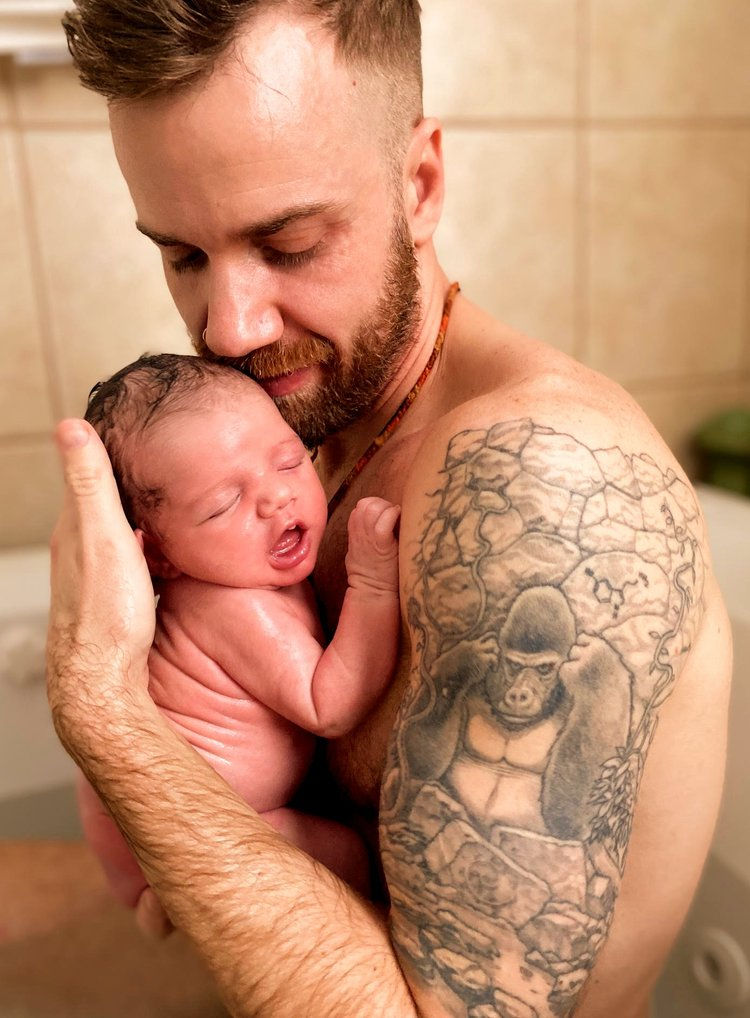
The role of a man in the childbirth process is a fascinating exploration into the realms of vulnerability, emotional presence, and redefining societal expectations of masculinity. As a soon-to-be father, your active participation in this journey not only benefits your partner, but also influences your personal growth and professional interactions. When you step past the traditional boundaries and offer unwavering support, you are not just holding space for the sacred unfolding of new life, but also cultivating deeper connections with those around you. So, gear up to gain an in-depth understanding of how you can navigate this emotional roller-coaster and enhance your overall experience in becoming a father.
Here are the key steps:
· Understanding the Sacred Unfolding of Childbirth
· Embracing Vulnerability in the Male Role
· The Importance of Holding Space in Childbirth
· Navigating the Emotionally Intense Journey of Fatherhood
· Reevaluating Societal Expectations of Masculinity
1. Understanding the Sacred Unfolding of Childbirth
Understanding the sacred unfolding of childbirth and the power of male presence during this transformative process offers a deeper layer of connection and support, setting the stage for active paternal involvement from the very beginning. Realizing that childbirth is not a problem to be solved, but a journey to be deeply experienced, unearths the divine masculine's potential role, not as an active problem solver, but as a compassionate container for this life-altering experience. This shift in perception opens up the space for profound personal growth, reflecting the all-encompassing transformation that childbirth embodies. Delving into the words and experiences shared by Dr. Nathan Riley provides a wealth of insights that resonate on a much deeper level. He passionately conveys the sentiment that fathers-to-be are not merely spectators in the advent of their child's birth, but are instrumental in creating the environment that allows for the natural flow of the birthing process. His unique perspective on the transformative nature of childbirth, reinforced by his personal journey and professional expertise, complements the idea of embracing vulnerability and holding the space just as a sacred unfolding transpires. By participating in exercises that expose the emotional intensity of receiving without the intent to fix or rescue, men are better prepared for the emotional landscape of childbirth, making them invaluable pillars of support throughout this journey. Understanding and embracing this enlightened view of male involvement in childbirth sets a transformative ripple effect into motion. It challenges the conventional depiction of childbirth as a women-driven event, opening the way for a more inclusive, supportive, and profoundly connected experience. Fathers-to-be who embrace their role as 'space holders' become an integral part of the process, creating a safe and tranquil environment for their partners while strengthening their bond. This active participation sets the foundation for continued involvement in their child's life and significantly enhances the shared parenting journey. By recognizing and validating these insights, society can redefine its view on childbirth, fostering an environment that encourages open dialogue, inclusivity, and holistic growth.

2. Embracing Vulnerability in the Male Role
In the fast-paced, problem-solving world we live in, stepping back and embracing vulnerability might seem counterproductive. However, as the connection between men and childbirth is explored, it becomes apparent that vulnerability has an essential role to play in the birth process. Through a specific instance, we come to understand that men have been conditioned to deal with situations by finding solutions and fixing problems. But childbirth isn't a problem to be solved; instead, it's a uniquely beautiful process to be witnessed. For a man, engaging in this process demands stepping outside the conventional problem-solving role and entering into a sacred space of vulnerability. This shift doesn't signify a weakness; instead, it embodies the true strength of the divine masculine, transforming it into a force of support, love, and understanding. Guest Dr. Nathan Riley's insights reveal how holding space and allowing the childbirth process to unfold naturally affects men’s involvement. He shares an inspiring story from his participation in an exercise at Burning Man, where men took turns emoting their unexpressed feelings while the other man received, without offering solutions. This experiment highlighted the power and spiritual charge associated with acknowledging, accepting, and even embracing vulnerability. A valuable lesson for expecting fathers to understand that their role isn’t to step in and interfere with the process but rather to act as an anchor supporting this beautiful and life-altering experience. The idea that embracing vulnerability plays an important part in the journey of fatherhood may seem unconventional. However, it's this very acceptance that can pave the way for a deeper connection between partners during the childbirth process. As explored in the discussion, the ongoing societal expectation focuses on men being the problem solvers, the fixers. In the context of childbirth, this narrative doesn't align. Here, the man's role shifts towards becoming an anchor for their partner, providing support and creating a safe space for the childbirth process to unfold organically. The transformative journey from becoming a man to a father includes learning to receive emotions without the instinct to fix or rescue and holding space for vulnerability. By doing so, they're not just spectators in this miraculous process but rather active participants shaping their family's story from the get-go. In embracing this shift, men can redefine their conception of masculinity, paving the way for stronger, deeper connections with their partners and children.
3. The Importance of Holding Space in Childbirth
The concept of 'holding space' during childbirth is an important idea that has come up in numerous contexts, taking on a multifaceted array of meanings. Being present during childbirth isn't merely about physical presence- it is about emotional alignment, providing emotional support, and creating a space of comfort and trust for your partner. The idea revolves around being receptive, understanding and responding to the emotional state of your partner. From the guest, Dr. Nathan Riley's perspective, 'holding space' is an integral part of the birthing process. Dr. Riley explains how men have often been taught to see their worth in being problem-solvers, but childbirth isn't a problem to solve; instead, it's a process to understand, respect and support. He uses the example of an exercise from Burning Man, where men were made to receive the emotional outburst of other men without responding- this, Dr. Riley believes, allows men to understand the power of emotional receptivity. Such an example is a microcosm of childbirth, where men can learn to support their partners without trying to 'fix' or 'solve' anything. The key takeaway here is crucial for expecting fathers as it sets a new paradigm for their role during childbirth. As Dr. Nathan Riley discussed, moving away from societal norms that constitute masculinity as merely a problem-solving attribute can lead to a more supportive, understanding environment during childbirth. The more men can understand and empathize with their partners, the more they allow for a smoother birthing process. By engaging in deep work and connecting with their emotional side, men can redefine their roles and aim to be supportive, caring and present during childbirth. This results in a transformative experience, not just for the mother, but for the father as well- fostering closer bonds and shared understanding.
4. Navigating the Emotionally Intense Journey of Fatherhood

The concept of men navigating the emotionally intense journey of fatherhood is a significant theme recurring throughout the podcast episode. It's often uncharted territory, considering the limited resources and support channels readily available for expectant fathers. Despite this, the increasing inclination of men to actively participate in childbirth presents an opportunity for exploration. The journey to fatherhood is not just a physical transformation for men but an emotional roller coaster with sharp curves of joy, anxiety, happiness, and sometimes, overwhelming fear. It's akin to diving into an ocean of varied emotions that unfold as the journey progresses. For many men, this emotional facet of fatherhood remains unexplored, primarily due to societal norms that traditionally place men in the role of breadwinners rather than caregivers. From the perspective of Dr. Nathan Riley, the transition to fatherhood presents a chance for men to tap into what he calls the divine masculine. While society often equates masculinity with the ability to solve problems and provide solutions, Dr. Riley suggests that in the context of childbirth, men can redefine their role as empathetic, patient, and supportive partners. Recalling his experience at a workshop at Burning Man, Dr. Riley draws parallels between the exercise of receiving and holding space for others' emotions, to the role of a man during childbirth. He suggests that fatherhood encourages men to embrace and navigate their emotional depths rather than suppress them, allowing for a more profound connection with their partners during this crucial journey. The importance of this key takeaway lies in the reshaping of societal norms and expectations that often constrain men's roles during childbirth. This shift towards a more emotionally engaged role can act as a catalyst for deeper connections not only between the couple but also with the newborn. Encouraging a more active participation from men in the birthing process might reshape the narrative of childbirth from being exclusive to women to its rightful place as a shared journey. This emotional involvement can pave the way for men to be adequately equipped to provide the necessary moral and emotional support their partners need during childbirth. Thus, this shift can transform the journey to fatherhood from a silent spectatorship to a shared and emotionally enriching experience, deepening bonds and contributing to a healthier family dynamic.
5. Reevaluating Societal Expectations of Masculinity
In the complex and often emotionally-charged journey towards parenthood, societal norms often place men on the sidelines, focusing predominantly on women's experiences. However, within these hushed conversations and unvoiced concerns, there's an opportunity and call for transformation. There's a chance for men to embrace a different, more involved model of fatherhood right from conception itself. The reevaluation of traditional masculinity is not a challenge towards its existence but a refined understanding of its role in parenting and in the birthing process. In the podcast, Dr. Nathan Riley brought attention to the concept of the divine masculine, where men are not merely bystanders but instead, are active participants in the childbirth process. Beyond the practical tasks and responsibilities, this role encompasses a deep emotional presence and an understanding of the transformative birthing journey. For instance, relating insightful anecdotes from a Burning Man exercise, he introduced the importance of holding space - a practice that encourages receiving and understanding emotions without the constant urge to fix the situation. This practice is reflective of childbirth, where a man's role is to anchor the family and provide a supportive environment for the sacred unfolding of birth. The importance of this newfound understanding of masculinity extends far beyond the hospital room or birthing center. It's a key to nurturing healthier relationships based on emotional availability and acceptance. It paves the way for stronger parental bonds and allows men to experience the joy of fatherhood more holistically. An aware, involved father figure contributes significantly to a child's development, shaping their world view, and having long-term impacts on their emotional wellbeing. Likewise, it strengthens the co-parenting bond, fostering mutual support, empathy, and a shared responsibility. Embracing divine masculinity doesn't dilute the essence of being a man; instead, it empowers men to take on fatherhood with a renewed and enriched perspective, thereby leaving an indelible impact on their relationships and their journey as parents.

The importance of the topic we've discussed today cannot be overstated. For fathers-to-be, grasping the sacred unfolding of childbirth and reevaluating societal expectations of masculinity is crucial. Not only does this allow you to provide essential support to your partner, but it also deepens your own experience and connection during this transformational journey. Each takeaway we've discussed offers a unique perspective that you can embrace to navigate the emotionally intense journey of fatherhood. I urge you to take these insights into account and truly become an active participant in the childbirth process.
Want expert help to implement these steps? Reach out to Dr. Nathan Riley for more! https://www.belovedholistics.com/





































Comentários